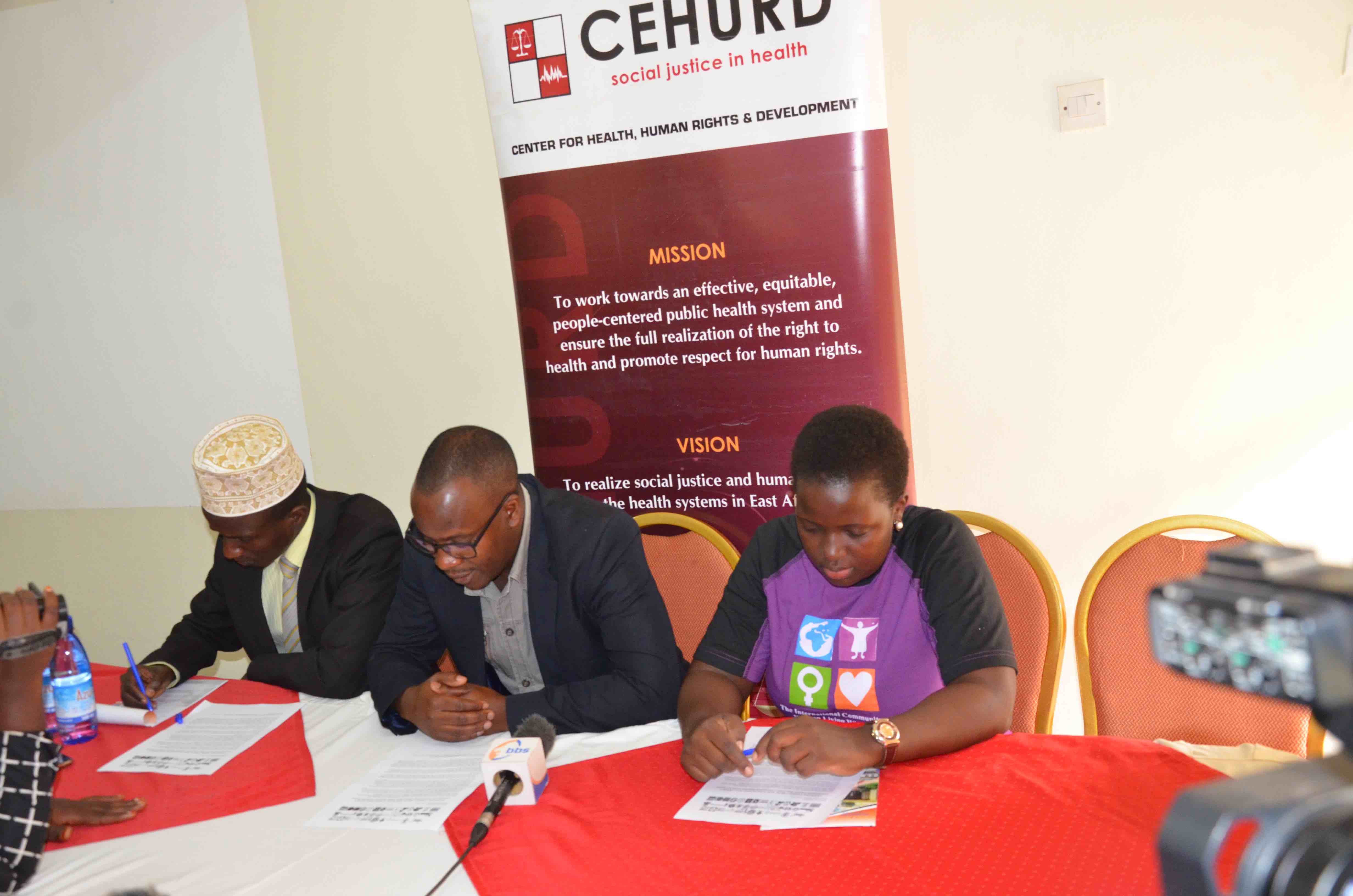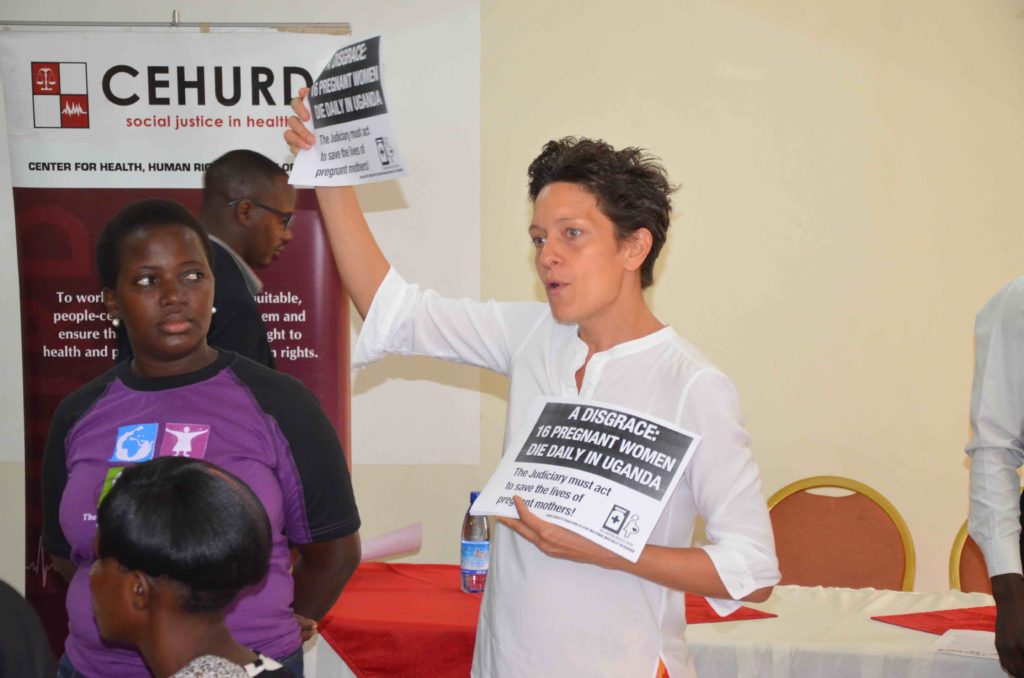(Kampala) Today a landmark case re-opened in Uganda’s Constitutional Court, Petition 16 of 2011, filed on behalf of two women who died in childbirth, Sylvia Nalubowa and Jennifer Anguko, by the health rights organization Center for Health Human Rights and Development (CEHURD).
EHURD and the families sued government, arguing that lack of access to essential maternal health care
services that killed their relatives was a violation of the right to health and the rights of women as set out in the Constitution. The case was re-opened following a ruling by Supreme Court on October 30 2015 striking down Constitutional Court’s earlier dismissal of the case in 2012.
Supreme Court determined unanimously that the lower Court had erred when they ruled that they had no mandate to hear a case regarding the alleged violation of health rights and the rights of women and
dismissed the case. CEHURD had argued before the Supreme Court that the failure to provide the basic
maternal health services to pregnant women in Uganda was a human rights issue that the Constitutional
Court had the mandate to hear, citing Article 137 (3) of the Constitution, which states that Constitutional
Court has the mandate to determine whether any act, law or policy of the government is in violation of any provision of the Constitution.
“This case is a matter of life and death for Ugandan pregnant women,” said Ms. Lillian Mworeko, Director of the International Community of Women Living with HIV/AIDS East Africa (ICWEA). “We are calling on the Judiciary to play its rightful role–for too long the plight of pregnant women has been ignored by government.”
“In Uganda access to essential health services for pregnant women is a public health crisis; the country has made virtually no progress in combatting maternal death over the last decade,” said Samuel Senfuka of White Ribbon Alliance Uganda. We know that this can change, and that the Judiciary has a critical role in altering the deadly status quo.”
More than 16 pregnant women die every day in Uganda, with the leading direct causes of preventable death being haemorrhage (42% of deaths), obstructed or prolonged labour (22%) and complications from abortion (13%). Major indirect causes include malaria, a factor in 36% of maternal deaths recorded, anaemia (11%) and HIV (7%). A positive ruling in Constitutional Court could have multiple direct effects on access to life saving health care services for pregnant women, such as requiring the government to remedy health rights violations through actions such as drastically improving access to free maternal health care services in the public sector, including emergency obstetric care.


